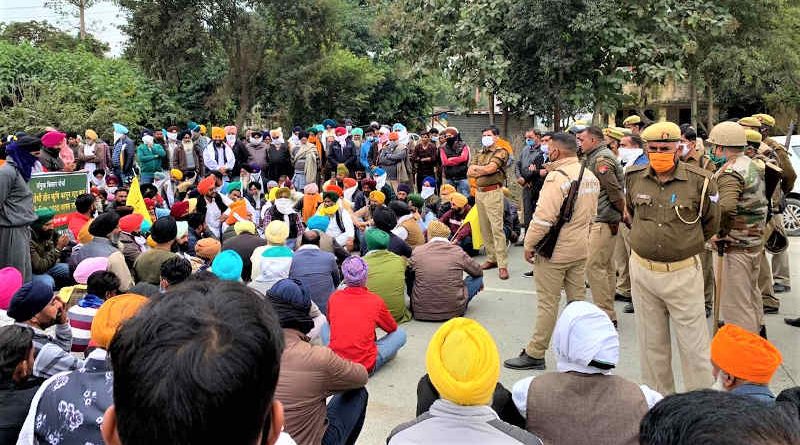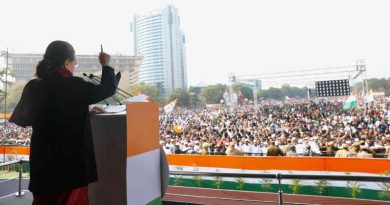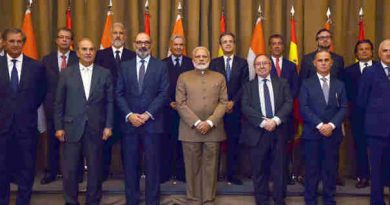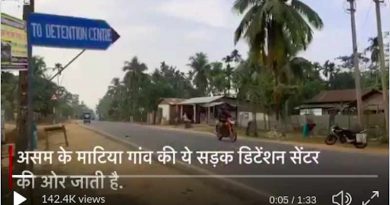Angry Indian Farmers to Protest at Parliament
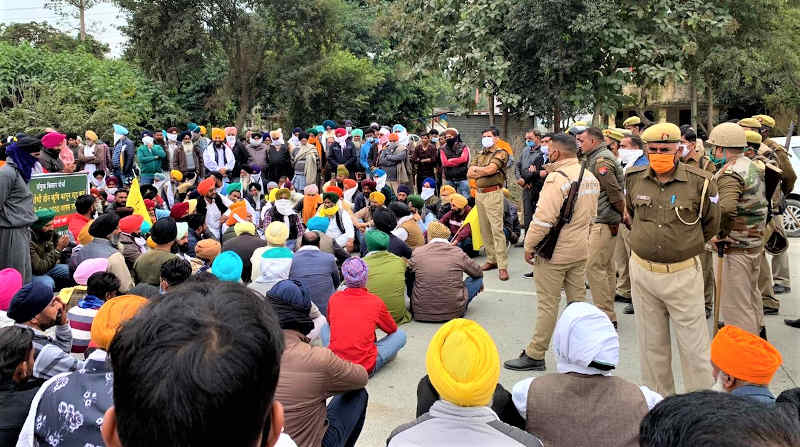
The SKM has also urged the opposition parties to raise the farmers’ issue in the Parliament, although the opposition groups are so weak that their noise in Parliament falls on deaf ears.
By Rakesh Raman
Indian farmers who have been protesting since November 2020 against the new farm laws have decided to demonstrate in front of the Parliament from July 22, as the monsoon session starts from July 19.
The Sanyukt Kisan Morcha (SKM), the umbrella organization of nearly 40 protesting farm unions, has decided to send 200 protesters everyday at Parliament to highlight their demands which include the repeal of farm laws.
The SKM has also urged the opposition parties to raise the farmers’ issue in the Parliament, although the opposition groups are so weak that their noise in Parliament falls on deaf ears.
Also, the discussion in Parliament has hardly any impact on the authoritarian government of Prime Minister (PM) Narendra Modi which is imposing the farm laws without discussing them with farmers.
Now farmers have decided to add new dimensions to their agitation. Thousands of farmers, who have been protesting on the outskirts of India’s capital New Delhi, expanded their agitation in different parts of the country on June 26 with the slogan ‘Save Farming, Save Democracy’.
The Indian farmers – mainly from the Punjab state – are demanding the repeal of new farm laws introduced by the Modi government. But the Modi government – which is hell-bent to crush all types of dissent in the country – has ignored the farmers’ demands.
Earlier, farmers were focused on their demands related to farming and pricing of their crops in the form of minimum support price (MSP). But after 7 months, they have realized that their demands are not being accepted because the Modi government works in a despotic manner. Now, therefore, they have extended the scope of their agitation to save democracy in the country.
Groups of farmers in different cities held protest marches on June 26 to hand over the memorandums of their demands to the President of India Ram Nath Kovind through the governors of different Indian states and Union Territories. Police used barricades, water cannons, and force to stop the marching farmers.
Now, along with their farming demands, the farmers expect the President to restore democracy in India so that the Modi government allows people to express their views and participate in the democratic process.
But President Kovind is not expected to help the farmers because he works as a mouthpiece of PM Modi. In fact, the President and most governors in India exist like puppets and parasites and they are so spineless that they cannot take any decision that may displease Modi.
|
Rural Resistance: Farm Laws and Protests by Farmers Raman Media Network (RMN) Company – which is working in diversified content creation, management, and distribution businesses on a global scale – has launched “Rural Resistance: Protests by Farmers” editorial section. This section under the RMN news service has been created to cover the agricultural reforms, farm laws, and the ongoing farmers’ protests in India. It carries news, views, and related developments and invites farmers as well as farming experts to share their views which will be published on the site. You can click here to visit the section. |
Therefore, the agitation of farmers to approach the governors and the President was only a symbolic exercise which is not going to deliver any meaningful outcome. However, if the farmers want their voice heard by the government, they will have to keep their focus on the protection of democracy in India rather than merely on agricultural demands.
In order to succeed, the farmers will have to further extend the scope of their agitation in India to include issues such as protection of human rights, eradication of bureaucratic and political corruption, electoral reforms, judicial accountability, and so on. The proposed protest of farmers at Parliament is perhaps a step in that direction.
By Rakesh Raman, who is a national award-winning journalist and social activist. He is the founder of a humanitarian organization RMN Foundation which is working in diverse areas to help the disadvantaged and distressed people in the society.
💛 Support Independent Journalism
If you find RMN News useful, please consider supporting us.

